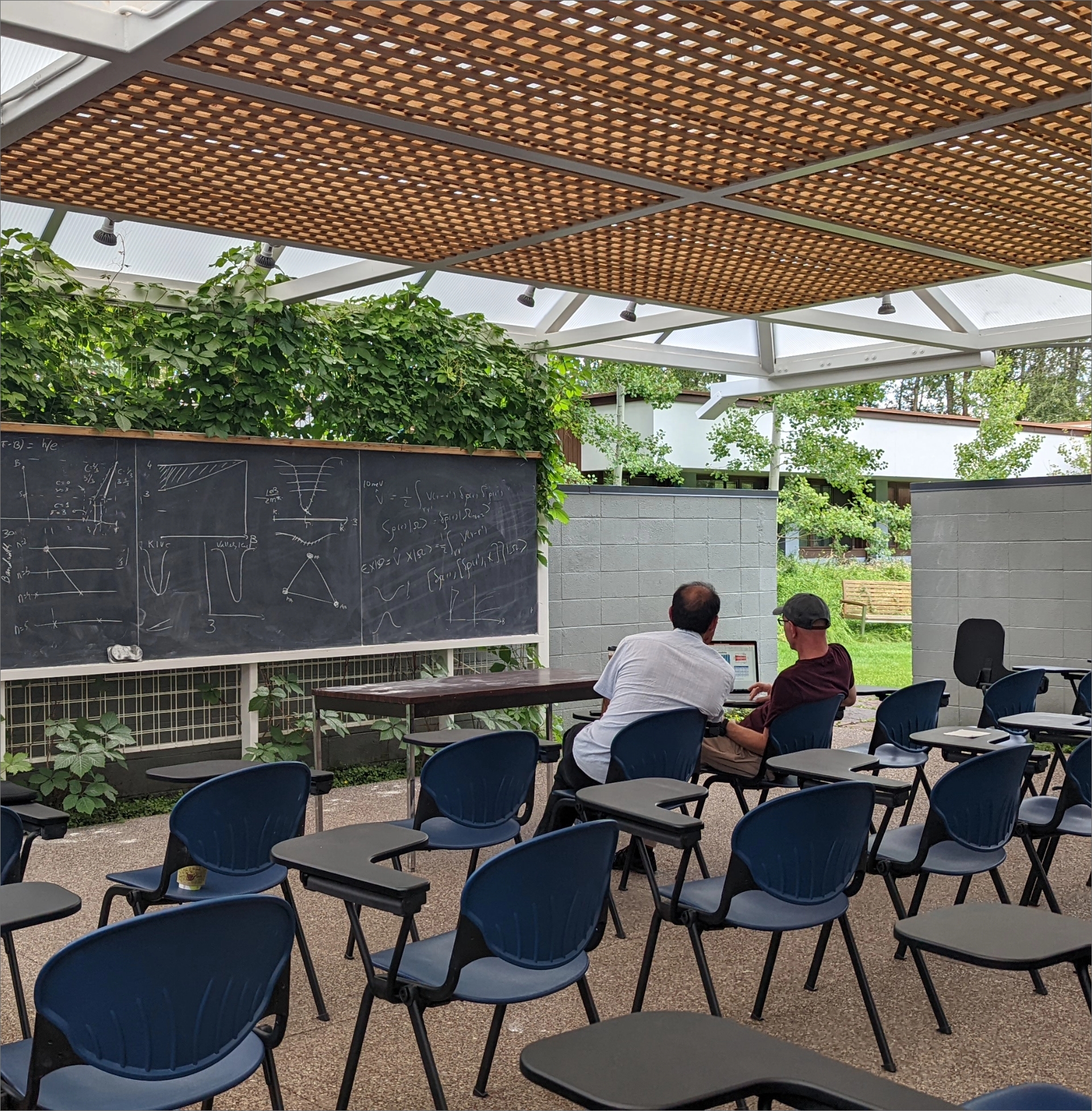
Summer Program
Geometric and Field Theoretic Methods for Astro-, Geo-, and Bio-physical Fluids
May 28–June 11, 2023
Organizers:
B Helen Burgess, University of St. Andrews
James Cho, Flatiron Institute
Albion Lawrence, Brandeis University
Jane Wang, Cornell University
Astrophysical, geophysical, and biophysical fluids are rapidly developing, high-impact fields with a wealth of new data, computational challenges, and conceptual puzzles. Outstanding problems in these fields include investigating new fluid analogues for gravitational systems and quantum fields, modeling atmospheres of tidally-locked exoplanets, understanding climate response to active tracers, predicting the scale and strength of jets, vortices, and magnetic islands in geophysical and astrophysical fluids, and understanding the interaction between flow and structure in bio-locomotion. Such “real-universe” systems can reside in parameter regimes (eg. strong rotation, stratification, viscosity, or magnetization) that allow analytical control. They are thus amenable to quantitatively accurate applications of modern geometric and field-theoretic techniques, such as asymptotic methods for path integrals, renormalization group and effective field theory approaches, generalized symmetries, holographiç “gauge/gravity” duality, geometric phases, and topologically protected excitations. Many of these field-theoretic techniques have seen significant recent advances, presenting opportunities to develop their applications to fluid systems. In return, specific fluid systems can also provide a context for new formal developments in classical, quantum, and statistical field theories. Hence, the goal of this workshop is to bring together an interdisciplinary group of scientists studying astrophysical and geophysical fluid dynamics, climate science, theoretical fluid and plasma physics, biological physics, turbulence, and field theory to form new connections that will drive these fields forward.
Summer Workshops
The summer program, running for 16 weeks from late-May to mid-September, emphasizes exciting open problems at the cutting edge. Two or three concurrent workshops, each with a specific focus selected for timeliness and the potential for breakthroughs and of two to five weeks in length, establish the main themes of each week, with twelve or thirteen different workshops each summer, balanced across fields including particle physics, string theory, astrophysics and hard and soft condensed matter physics, as well as emerging areas including biological physics, ultra-cold atom physics, quantum information, and physical mathematics. Additional researchers participate in small working groups or as individual researchers. This framework is designed to maximize informal interactions and free discussion within each area and to promote cross-fertilization between different areas via the common language of theoretical physics. Participation in the summer program of the Aspen Center for Physics is by application and subsequent invitation only. View past workshops.
